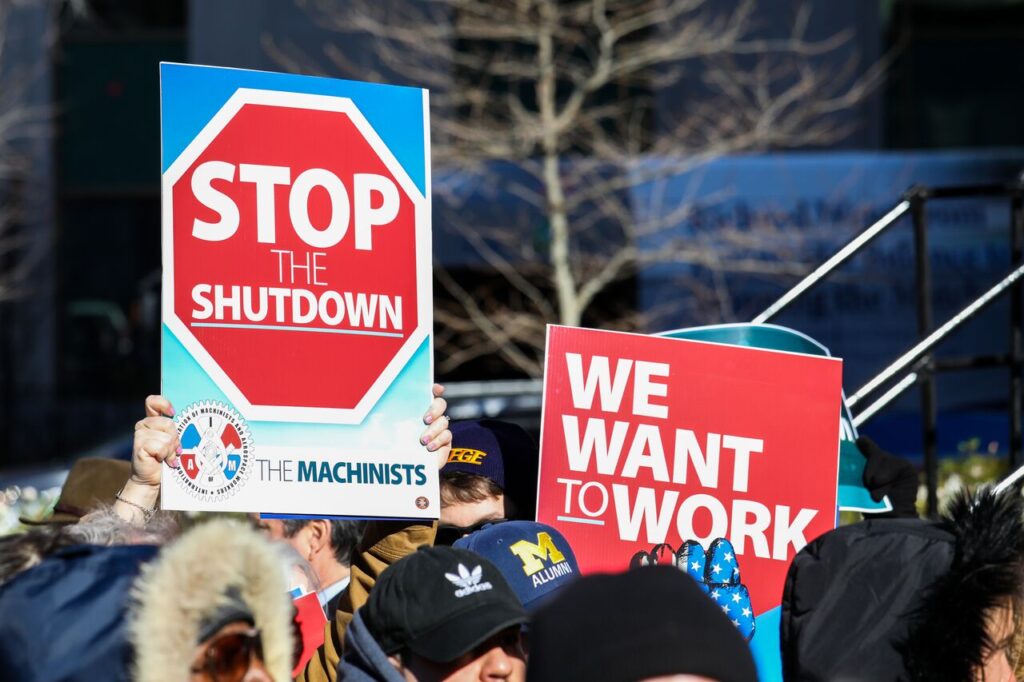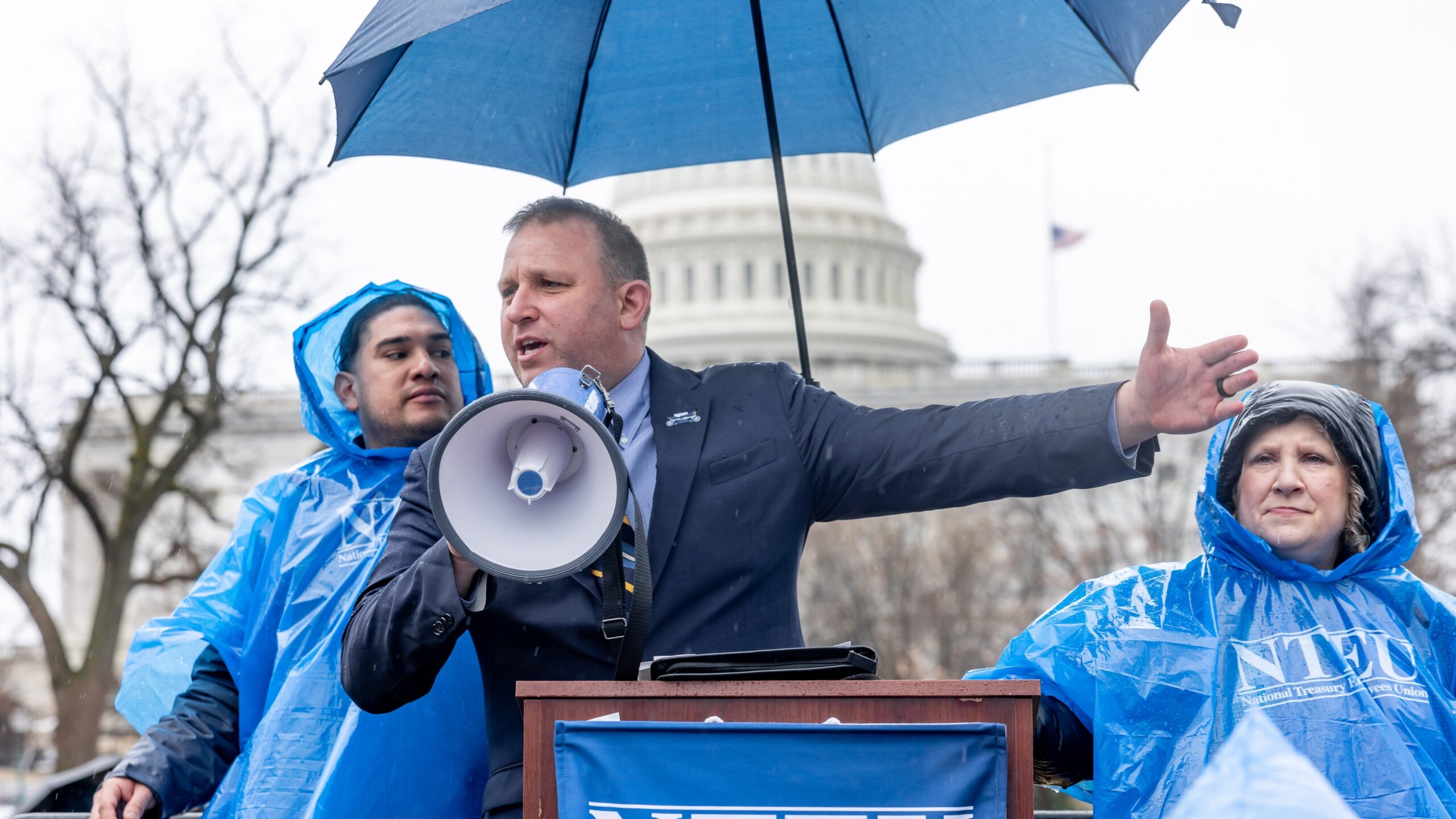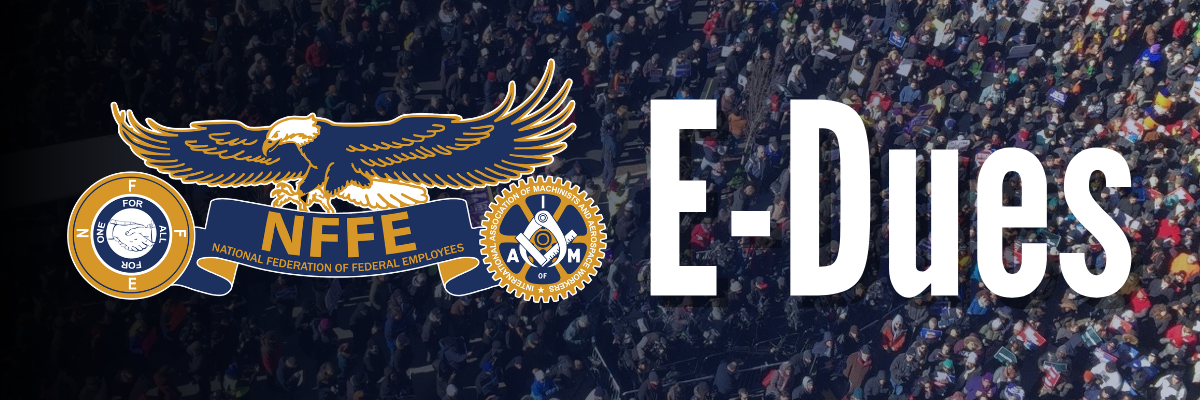
Updated January 30, 2026
It is very likely that we will enter a partial government shutdown beginning Saturday and continuing through at least Monday, and possibly longer. There is an agreement between Senate Democrats and the White House to fund all FY26 appropriations bills except the Department of Homeland Security. Under this framework, DHS would continue operating under a continuing resolution while outstanding issues are resolved. NFFE-IAM worked aggressively to protect timely pay for union members.
If a shutdown begins, the most important rule for NFFE-IAM members is: unless you receive written notice directing you to stay home, you should report to work and obtain confirmation that you are furloughed. This helps avoid misunderstandings and protects you from any claims of unauthorized absence.
Departments and agencies by the appropriations bills that will see a lapse in funding include: Defense, Financial Services (independent agencies), Homeland Security, Labor-HHS-Education, National Security-State, and Transportation-HUD.
These departments and agencies ARE NOT affected and remain funded: Agriculture, Veterans Affairs, Justice, Interior, Commerce and Energy, as well as the EPA, water programs, federal science initiatives, the FDA, and the operations of Congress itself.
We will keep you posted on any updates throughout the weekend.
Resources
- Furlough Guidance Website
- OPM Shutdown Guide
- Unemployment Insurance Q&A
- Shutdown Assistance Map
- FEEA Resources for Federal Civilian Employees
- Unemployment Compensation for Furloughed Federal Employees and Contractors: A Guide to the Shutdown
- AFL-CIO: State Resources for Shutdown-Impacted Federal Employees
E-Dues
NFFE understands a government shutdown takes a toll on our members' finances and paying dues can be difficult during this time. If you are going unpaid during a government shutdown and would like to pause your NFFE E-Dues, please send an email to e-dues@nffe.org explicitly stating you would like a pause dues because of the shutdown. Please also include your full name and local number.
Guidance
Please see this guidance document regarding pay status clarifying the terms nonexempt/furloughed, exempt, and excepted.
As a reminder, NFFE fought hard to pass the 2019 Government Employee Fair Treatment Act which ensures that in the event of a funding lapse, all furloughed employees will receive their pay retroactively upon the government reopening. However, while passing this law was a great victory for federal employees, it does little to bring financial relief to workers for the duration of a shutdown.
In addition to preparing personal finances to cover bills and other expenses a shutdown, NFFE recommends the following steps to stay safe at work and stay in touch if forced to into a furlough:
- Report to Work as usual unless your agency informs you in writing that you are officially furloughed. Otherwise, you risk an unexcused absence if you are not furloughed.
- Sign Up for alerts using your personal email.
- Call Congress at (202) 224-3121 and demand that they fund the government and keep it running.
- Gather personal phone numbers and non-gov emails to communicate with members.
- Post this memo at your workplace and help spread the word.
- Review your personal finances and prepare for the possibility of delayed paychecks.
- Help NFFE members with access to emergency loans through the Federal Employee Education and Assistance Fund (FEEA), on which NFFE serves on the board of directors. For more information, visit the FEEA website at feea.org.



